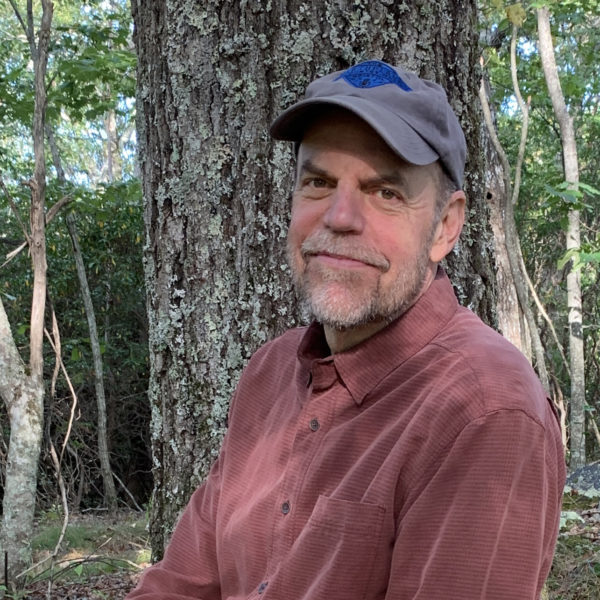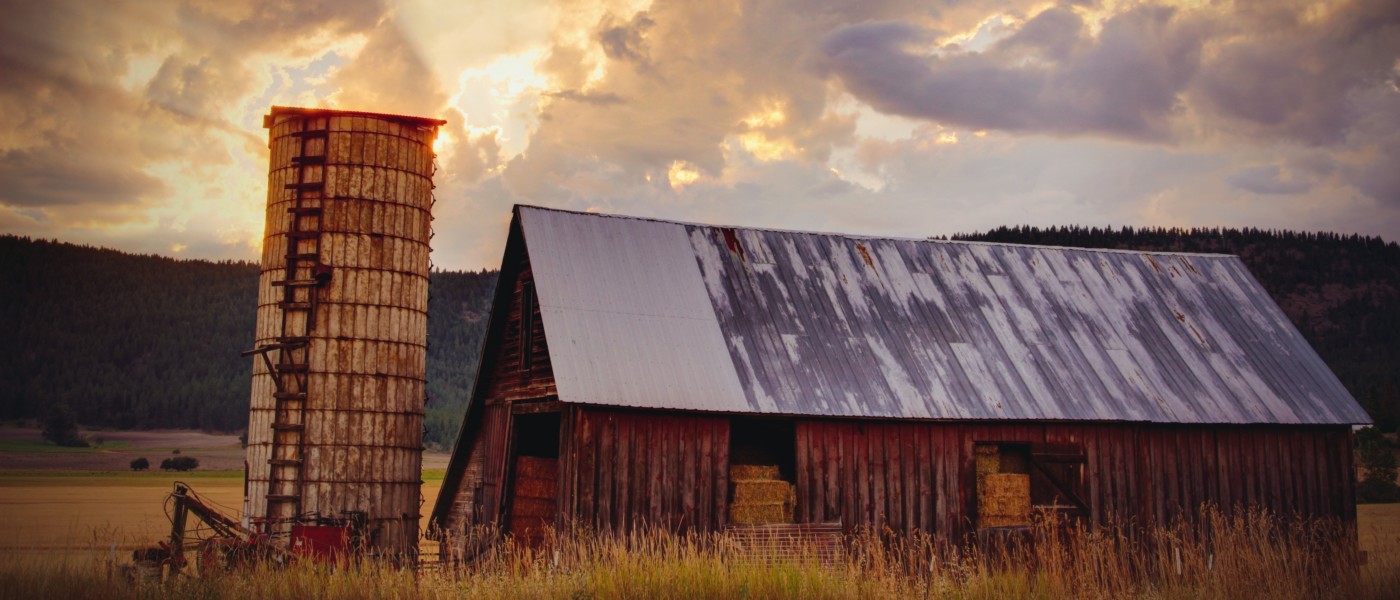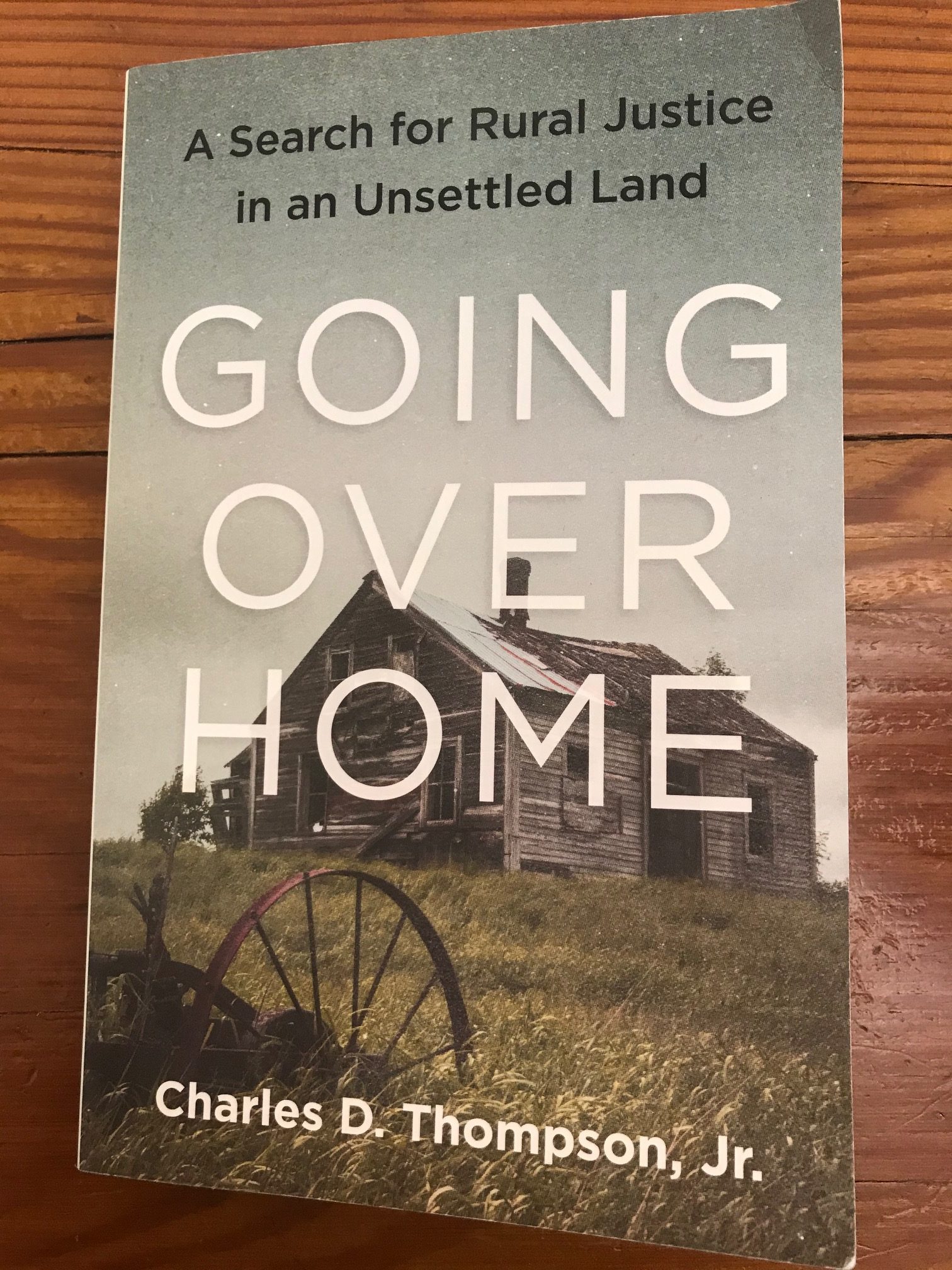In 2014, as Farm Aid planted the seeds for our first festival in North Carolina, we were introduced to documentary filmmaker Charles D. Thompson, Jr. From our first conversation, it was abundantly clear that Charlie’s life experience—as a storyteller, farmer, farm and rural advocate, and social and racial justice advocate—was perfect for understanding a huge responsibility that Farm Aid bore: telling the story of farm advocates who rose up during the 1980s Farm Crisis to help other farmers save their farms.
Charlie became the director of our film, Homeplace Under Fire, and in the process met our farm advocate heroes. With the recent publication of his memoir, Going Over Home, we feel so fortunate to learn the details of Charlie’s life, values and beliefs that connect him so dearly to Farm Aid’s work. With this book, we know the specifics that put Charlie in the category of our heroes like Mona Lee Brock and Ralph Paige, who fought for farmers, rural communities and for a better system of agriculture. Charlie’s story—and his sharp and poetic insight into the hard truths of land ownership and agriculture and racism and inequity– is one that every person who cares about agriculture and rural communities should know.
Going Over Home tells Charlie’s story of a rural upbringing in Appalachia. His parents were the first generation to move off the farm, but he spent hours on his grandparents’ farm, where “every turn of a door handle meant new adventures and lessons learned. Those forays are how I first came to embrace my sense of belonging to agriculture, and how I knew that I, too, wanted to be a farmer.” But from an early age, watching his grandparents struggle to make ends meet on the farm, with his grandfather working multiple jobs, Charlie understands that farming is more difficult than it should be. “It all made me wonder, ‘Why isn’t farming enough?’ I asked Grandpa why people who work hard can’t at least get back what it costs them to raise food.” In Grandpa’s answer, Charlie found a foundation for his own concepts of justice.
“Every farm dream begins with optimism. Every farmer must believe in the impossible in order to plant the first seed.”
When his grandparents passed away, his father’s family met to figure out what to do with the farm. Charlie writes, “No one talked about the land being a family farm or preserving it for posterity. They only spoke of the division of the proceeds into fourths, with everything remaining as equitable as possible.” In the struggle all around him in rural Appalachia Charlie came to understand, “With families selling or dying out, the rural ethos shifted toward profit and acquisition, and the industrial model of agriculture we came to call agribusiness became the norm.” A brief encounter in 1978 with the American Agriculture Movement (AAM) Tractorcade on a Virginia highway hinted of Charlie’s farm activism to come. He slowed down to honk and wave in solidarity with the farmers on their way to Washington, D.C., to protest unfair farm policies. He later realized, “Though I had never been a farm owner, I too, had experienced a farm crisis. I was grieving.”
These concepts—of the value of rural life and agriculture, and the importance of fair pay for hard work– would grow deeper roots as Charlie became a member of the 1960s counter-culture movement, the back-to-the-land movement, and also the vocational agriculture group in high school. “I got why the Vo-Ag boys wore real work clothes that were cheaper and more polyester than the all-cotton pretend work clothes of the college-bound students… What all of it conveyed to me was that the FFA boys were from different histories and places from that of the college-bound—and they were trying to hold on to their rural world with all they had, even as their lives were becoming unmoored.” His horticulture classes didn’t just introduce Charlie to a critical analysis of rural poverty; they also introduced him to organic agriculture, though “None of what I was learning was new to my grandparents.” He writes, “This community I had joined made it okay for me to openly admit to friends and family that I wanted to be a farmer.”
Graduating college with a degree in sociology, anthropology and community organizing, Charlie gained his first actual on-farm experience the following summer. Koinonia Farm, in Americus, Georgia, combined agriculture and racial reconciliation in its mission and reinforced in Charlie the power of feeding oneself and one’s community and the heavy weight of understanding one’s white privilege. Grasping the legacy of slavery and sharecropping and the theft of Native American-owned and Black-owned land, he formed the analysis that allows him to write, “The benefits of land tenure must always be tempered by the losses that made it possible.”
After a job organizing community gardens in the coalfields of Kentucky, Charlie joined another organic farm that would eventually lead him to become a farm advocate, counseling farmers during the farm crisis. He was hired at first as a driver for Betty Bailey (who had broken her arm), the head of the Farm Survival Project at Rural Advancement Foundation (RAF, now RAFI, Farm Aid’s long-time partner). But when he finished his master’s degree from NC Agricultural & Technical State University, Charlie was hired to do the direct work of talking with farmers in crisis. “The initial set of responses was straightforward: First, let the calling farmer know that he or she was not alone. Second, tell the caller that this crisis was not of his or her making, but was due to structural failures in the farm economy. Third, try to encourage the caller to talk with neighbors and get them to a meeting where the RAF staff could talk with farmers about how to work together to address the problem politically.”

The author, Charles D. Thompson
When he officially began to staff the hotline, “I often returned home well past midnight having visited Lumbee, African American and white farmers—both female and male—in over twenty counties. Our hope was that our help would lead farmers to believe they could help one another.” This organizing work was hugely successful for a time, bringing white and Black farmers together to realize their common challenges and goals. “We just had to keep all of the farmers in the same room and talking to one another, which, of course in a racialized and divided South, was no small feat.”
This experience of counseling farmers and organizing would serve Charlie well when in 1983, at the age of 28, he was denied his own beginning farmer loan. His application, reviewed by two men serving on the county committee that held his future in their hands, was deemed deficient in the following ways:
- Not considered a typical farmer in area,
- Lacks practical experience necessary to operate a farming operation to insure reasonable chance of success.
Charlie’s appeal, an approach honed by his experience helping farmers who were discriminated against fight for their own farms, was ultimately successful, and he realized his dream of being a farmer. As he puts it, “Every farm dream begins with optimism. Every farmer must believe in the impossible in order to plant the first seed.” But operating his own organic berry farm on his own, Charlie came to understand how much our agriculture system relies on immigrant labor and cheap labor. It also helped him realize that “forging agricultural alternatives would never be enough to change the trajectory of our nation’s agricultural systems writ large. … no one ever truly escapes industrial agriculture.” In his soil, he found arrowheads, evidence of the people who farmed there before him. And from his neighbor, he learned of the Black family who raised cotton on his land, and who lost their farm after a bad crop year. “From that day on, every time I dug into the soil, I thought of those now invisible people who had worked the same land before me. As I did so, I came to realize that anyone’s possession of land almost always means another’s loss.”
Wrestling with these hard truths and with the challenge of being a family farmer without a family to call on, he credits his farmworkers, who had their own farms back in Mexico, with teaching him “that my prime interest in farming was not personal landownership or being successful as an organic grower after all, but rather learning and knowing how and why so many people who had worked America’s soil, harvested its produce, and butchered its animals had been treated like dirt.”
While he continues to steward the land in his spare time, Charlie works today to share the stories of farmers and farmworkers, in Appalachia and in Mexico. He continues to fight for the justice that has grounded his faith in rural places and in the soil. In today’s climate of division he writes, “The great challenge before us, whether in Appalachia, the rural South, or anyplace in the world, is to plant seeds of hope and change in soil that has been soured by anger and division.”
Going Over Home gives the reader many reasons to find those seeds of hope and an approach for how to sow them. Charlie’s various and many endeavors–in farming and in advocating for agriculture and those who do the work of agriculture–inspires the reader to think about what we each can do. He connects agriculture and working for justice beautifully. He writes, “Justice work taught me that building community-based groups has much in common with farming. Even knowing there is a very good chance of a crop failure each season, we believe our work will bear fruit, if not now, then sometime, somewhere. We keep believing in humanity’s ability to change, even during the times when we cannot see past today’s news.”




